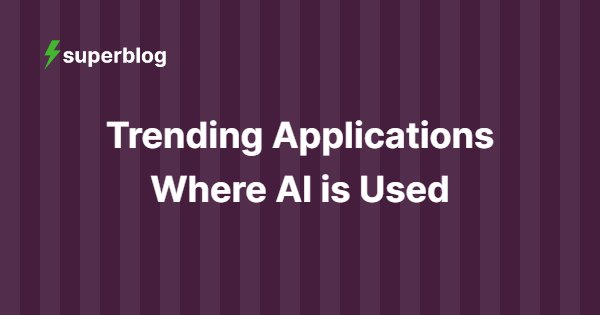Building Secure and Transparent AI Systems
Artificial intelligence (AI) and blockchain technology are two transformative technologies that are rapidly reshaping various industries. When combined, they offer a powerful solution for addressing the challenges of security and transparency in AI systems.
Blockchain, a distributed ledger technology, provides an immutable and secure record of transactions. By integrating blockchain with AI, we can create AI systems that are tamper-proof and auditable. This is crucial for ensuring the integrity of AI models and preventing malicious actors from manipulating them.
Furthermore, blockchain enables the creation of decentralized AI systems. Instead of relying on a single centralized entity, AI models can be distributed across a network of nodes, making them more resilient to attacks and censorship. This decentralized approach also promotes transparency, as all transactions and model updates are recorded on the blockchain and accessible to all participants.
Another key benefit of combining AI and blockchain is the ability to create self-governing AI systems. By incorporating smart contracts into blockchain-based AI systems, we can define rules and conditions that govern the behavior of the AI. This ensures that the AI operates within ethical and legal boundaries and prevents it from making decisions that could harm users or society.
Moreover, blockchain can facilitate the sharing and collaboration of AI models. Researchers and developers can securely share their models on a blockchain-based platform, allowing for collective innovation and the development of more robust and accurate AI systems. This collaboration also promotes transparency, as the provenance of models and their performance can be easily traced.
In conclusion, the integration of AI and blockchain offers a promising solution for building secure and transparent AI systems. By leveraging the immutability, decentralization, and self-governing capabilities of blockchain, we can create AI systems that are trustworthy, auditable, and resistant to manipulation. This will pave the way for the responsible and ethical adoption of AI in various domains, from healthcare to finance and beyond.
The Role of Blockchain in Enhancing AI Security
Artificial intelligence (AI) has revolutionized various industries, but concerns about its security and transparency remain. Blockchain technology, with its inherent security and immutability, offers a promising solution to address these challenges.
Blockchain is a distributed ledger that records transactions in a secure and tamper-proof manner. By integrating blockchain with AI systems, we can enhance their security and transparency in several ways.
Firstly, blockchain provides a secure platform for storing and managing AI models. The decentralized nature of blockchain makes it resistant to unauthorized access and manipulation. This ensures that AI models remain intact and protected from malicious actors.
Secondly, blockchain enables transparent and auditable AI decision-making. By recording all AI-related transactions on the blockchain, we create an immutable record of the data used, algorithms employed, and decisions made. This transparency allows for accountability and reduces the risk of bias or discrimination in AI systems.
Thirdly, blockchain facilitates secure data sharing and collaboration in AI development. Researchers and organizations can share data and models on the blockchain without compromising confidentiality. This fosters innovation and accelerates the development of more robust and reliable AI systems.
Moreover, blockchain can help prevent data poisoning attacks, where malicious actors manipulate training data to influence AI models. By storing training data on the blockchain, we can ensure its integrity and prevent unauthorized modifications.
Furthermore, blockchain can enhance the security of AI-powered devices. By integrating blockchain into IoT devices, we can create a secure network for data exchange and device management. This reduces the risk of cyberattacks and ensures the integrity of AI-driven operations.
In conclusion, the integration of AI and blockchain offers a powerful solution to address the security and transparency challenges associated with AI systems. By leveraging the decentralized, immutable, and transparent nature of blockchain, we can build more secure, reliable, and accountable AI systems that drive innovation and benefit society.
Leveraging Blockchain to Improve AI Transparency
Artificial intelligence (AI) has revolutionized various industries, but concerns about its transparency and security persist. Blockchain technology, with its immutable and decentralized nature, offers a promising solution to address these challenges.
Blockchain provides a secure and transparent platform for recording and tracking AI-related data. By leveraging blockchain’s distributed ledger technology, AI systems can maintain a tamper-proof record of their training data, algorithms, and decision-making processes. This transparency enhances accountability and reduces the risk of bias or manipulation.
Moreover, blockchain’s decentralized architecture ensures that AI systems are not controlled by a single entity. Instead, the data and algorithms are distributed across a network of nodes, making it more difficult for malicious actors to compromise the system. This decentralized approach strengthens the security of AI systems and protects them from unauthorized access or manipulation.
Furthermore, blockchain can facilitate the sharing of AI models and algorithms among researchers and developers. By creating a secure and transparent marketplace for AI assets, blockchain enables collaboration and innovation. This sharing of knowledge and resources accelerates the development of more robust and ethical AI systems.
Additionally, blockchain can be used to track the performance and impact of AI systems. By recording the results of AI-driven decisions and their consequences, blockchain provides a valuable tool for evaluating the effectiveness and fairness of AI algorithms. This data can be used to improve the accuracy and reduce the bias of AI systems over time.
In conclusion, the integration of AI and blockchain offers a transformative approach to building secure and transparent AI systems. Blockchain’s immutable and decentralized nature provides a foundation for recording and tracking AI-related data, ensuring accountability and reducing the risk of bias or manipulation. By leveraging blockchain, we can unlock the full potential of AI while mitigating the associated risks, fostering trust and confidence in AI-driven technologies.

